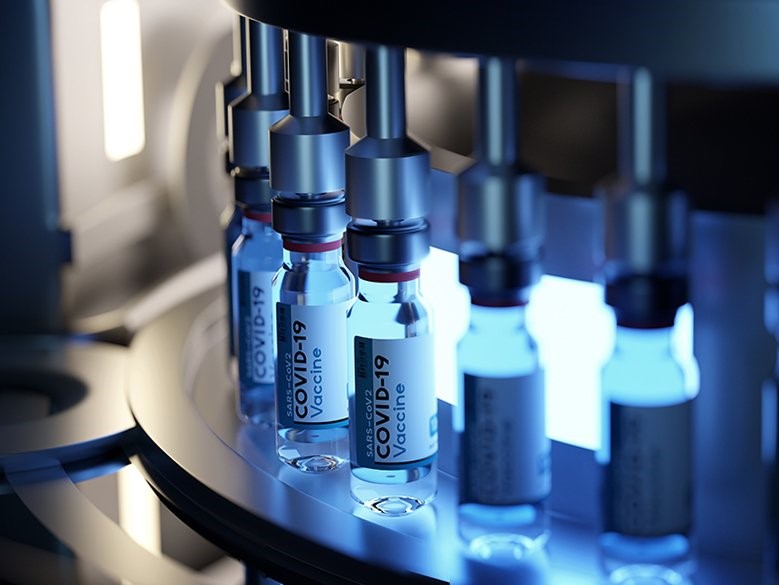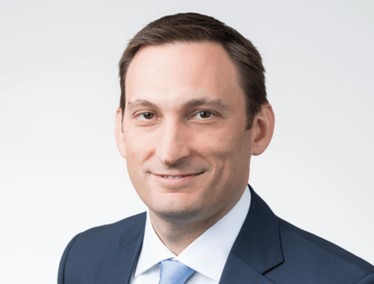Powering Global Access: Building a Reliable, Efficient Pharmaceutical Supply Chain

AmerisourceBergen and Alliance Healthcare - November 2021
The unprecedented scale of the COVID-19 pandemic and the distribution of billions of vaccine doses and therapies worldwide has put an increasingly large spotlight on the global pharmaceutical supply chain. Now more than ever, there is a heightened focus on the development and ensuing distribution of pharmaceutical products—including the solutions, expertise and collaboration needed to deliver temperature-sensitive vaccines from a manufacturer’s facility to all corners of the world, on-time and in the right condition.
With just over half of the world’s population having received at least one dose, the roll out of COVID-19 vaccine doses is still far from over. However, the lessons learned from this distribution effort—and the challenges introduced over the last 18 months—will result in lasting changes and new considerations that strengthen the global pharmaceutical supply chain and help drive increased product access worldwide.

“While much work is still needed, the tremendous innovation and collaboration across the industry to develop and then distribute billions of COVID-19 vaccine doses worldwide within such a short timeframe underscores the value and efficiency of this industry,” said Doug Cook, EVP and President, Business Group—Global, at AmerisourceBergen.
Expanding Access Worldwide
Through its network of global businesses and capabilities, AmerisourceBergen has supported the distribution of more than 100 million COVID-19 vaccine doses across 30-plus countries, providing an array of logistical services and support like third-party logistics (3PL), importation and temperature-controlled packaging and storage.
As part of an agreement with the Government of Canada, Innomar Strategies, a part of AmerisourceBergen, has worked FedEx Express Canada to distribute more than 30 million COVID-19 vaccine doses across Canada’s vast geography, including deliveries to remote communities in the Northwest Territories. Thousands of miles away, teams at Alliance Healthcare—a leading pharmaceutical wholesaler in Europe that AmerisourceBergen acquired in June—have distributed more than 50 million COVID-19 vaccines across the UK, France, Spain, Czech Republic and Lithuania. In the UK, for example, Alliance Healthcare and Alloga, its healthcare logistics business, worked with the National Health Service to build robust strategies, enabling them to deliver about 35 million vaccine doses to nearly 1,500 sites of care thus far.

“Since the start of the pandemic, our teams have worked tirelessly to safeguard the pharmaceutical supply chain and ensure access to critical pharmaceutical products, including COVID-19 vaccines,” said Juan Guerra, SVP & Managing Director of Alliance Healthcare. “We’re incredibly proud of our front-line workers. Because of their commitment and exemplary work, we’ve been able to provide communities across Europe reliable access to COVID-19 vaccines, as well as the treatment they need every day.”
While the global vaccination rate continues to climb, distribution efforts in some countries in Asia and Africa still lag far behind due, in part, to limited supply. Less than 5 percent of people in low-income countries have received at least one dose, according to reports. In some regions, varying levels of logistics infrastructure, like cold chain storage equipment, and unreliable access to electricity and the internet can make last-mile distribution more challenging.
Since the rollout of COVID-19 vaccines began in December 2020, World Courier, AmerisourceBergen’s global specialty logistics business, has leveraged its cold chain packaging solutions, advanced technology capabilities and global network to support distribution efforts in more than 30 countries. The company has also provided transport and storage services to support clinical trials for COVID-19 vaccines and therapies. During the last several weeks, World Courier has used its passive packaging solution, Cocoon, to support deliveries of donated COVID-19 vaccines from Norway to Armenia, and Ireland to Uganda, Cook said.
Meeting the Needs of a Global Pharmaceutical Market
Even after the pandemic, there will continue to be a significant demand for partners that can help pharmaceutical companies launch products in markets worldwide and support global distribution.
Driven by the burgeoning pipeline of therapies, specialty pharmaceutical products—like biologic medicines and cell and gene therapies—are projected to account for nearly two-thirds of new product launches by 2023. Meanwhile, reports project a nearly 50 percent growth in global biopharma sales for cold chain projects between 2018 and 2024. The influx of complex specialty therapies comes at a time when more countries are emerging as more popular pharmaceutical markets. In order to ensure patients worldwide have access to these complex, innovative products, pharmaceutical companies will need to work with distribution partners that can help them navigate potential challenges, like varying regulatory requirements and long-distance shipments to areas with limited logistics infrastructure. Challenges created by the pandemic, including limited airfreight capacity, add a layer of complexity to long-distance, international shipments.
“With supply chain disruptions and airline capacity down, we’ve had to adjust to an almost day-to-day navigating environment,” Cook said, before sharing a story of how a shipment of sensitive samples needed to get from Indiana to Montreal, but in order to clear customs in a timely manner the quickest way to ship was to go through Paris. “The challenges brought by the pandemic have reinforced the importance of working with distribution partners that can build rigorous yet flexible supply chain strategies to ensure pharmaceutical products can be delivered reliably and efficiently.”
As the pharmaceutical market becomes more globalized, distribution partners with a broad geographic footprint, logistical expertise and end-to-end manufacturer solutions will be best positioned to help pharmaceutical companies navigate potential challenges, increase patient access and drive product success, Cook and Guerra said. To build more sophisticated supply chains, pharmaceutical companies and distribution partners are making investments in infrastructure, packaging innovation and advanced technology solutions. For example, World Courier recently opened GMP-compliant depots in Turkey and Chile, expanding its network of one-stop global clinical supply support and commercial drug storage and distribution depots which are located in more than 20 markets worldwide. In addition, Alliance Healthcare opened a new 25,300m2 headquarters and logistics center in Barcelona, Spain, which will house an international hub for clinical trials.
As businesses across AmerisourceBergen continue to expand and enhance their operations, there is a consistent priority that’s factored into decisions and investments: a commitment to establishing more sustainable and responsible operations across the supply chain. Teams are deploying sophisticated systems and innovations to improve efficiency, product safety and quality, while also working to manage greenhouse gas emissions, improve energy efficiency, minimize waste and maximize recycling. For example, Cook said, AmerisourceBergen is working with some of its largest customers to reduce the number of deliveries per week, a model that will reduce vehicle miles and carbon dioxide emitted while still providing customers with the inventory they need. Over the past year, AmerisourceBergen has reduced its greenhouse gas emissions by about 10 percent.
The pharmaceutical industry’s efforts throughout the pandemic highlighted the strength and resiliency in ways that hadn’t previously been thought possible.
“COVID proved what we’ve been saying for years—how important the integrity of the supply chain is to the world,” said Guerra.

 Spain
Spain